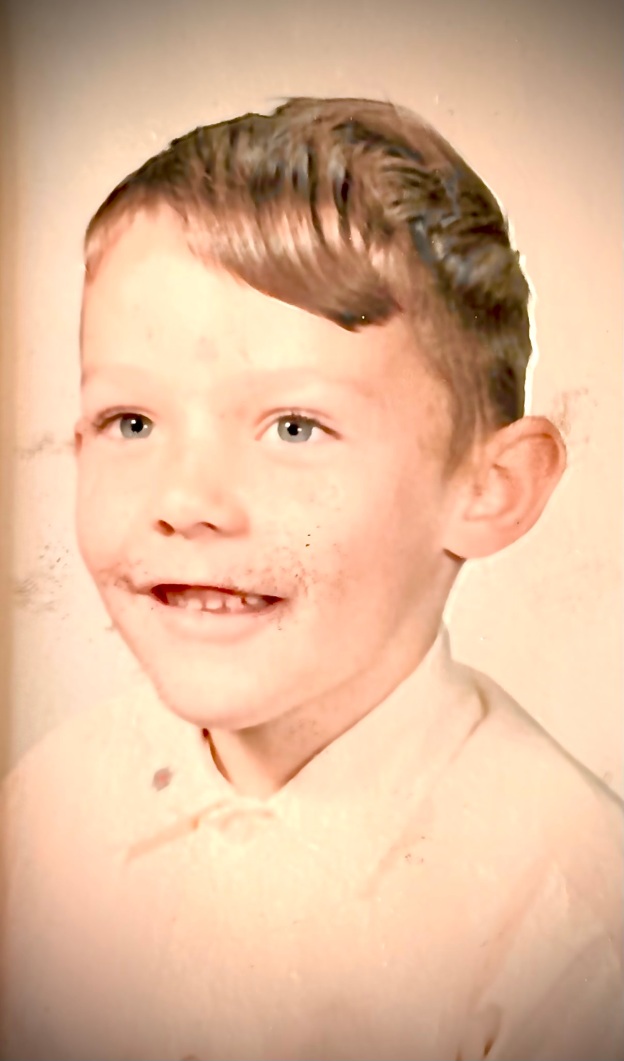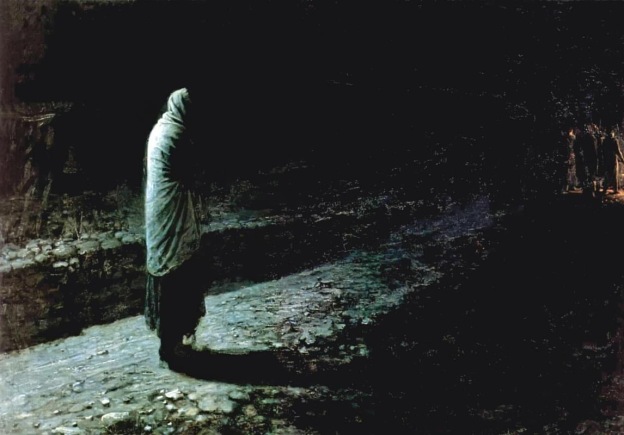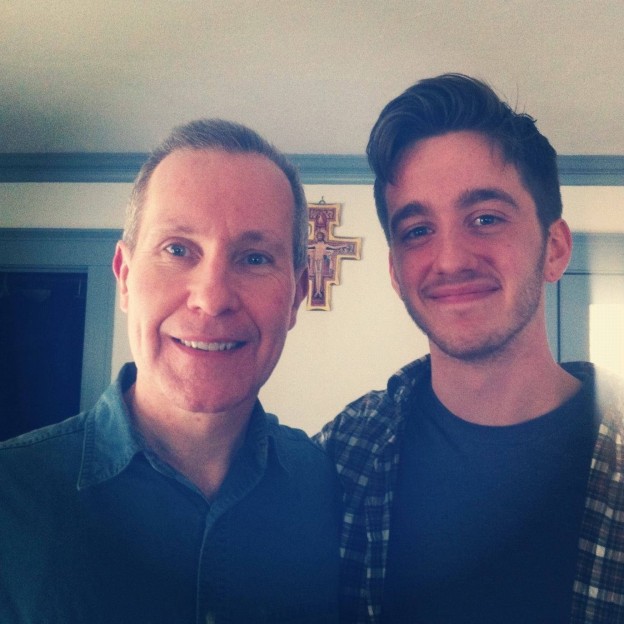/dem.a.gog/ – a person, especially a political leader, who wins support by exciting people’s emotions rather than by holding and expressing good or morally right ideas.
Preface:
Dear readers, I have never gotten overtly political in this forum, but recent events weigh on my conscience and compel me to share some serious concerns I have about the upcoming presidential election and its potential implications. Specifically, I would like to address the candidacy of Donald Trump.
Although I will reference both immigration and abortion (below), my intent is not to probe either of those hot-button issues in any depth. Rather, I intend to address them only vis-a-vis Trump’s candidacy.
In the interest of transparency, I do understand the need for countries to have secure borders; however, I also believe that immigration policies should be humane and should recognize the dignity, and the often desperate circumstances, of those seeking work and/or refuge in our country. Likewise, I am unashamedly pro-life; however, I believe that a pro-life position should be consistently applied, i.e., it should include every person (including the undocumented) and every phase and aspect of life from conception to natural death.
With those necessary qualifications expressed, I cautiously proceed. Please know that what follows are my personal views and should only be seen as such; however, I share them here in the hope that you will consider their merit.
—
A few days before Christmas, Donald Trump made some particularly inflammatory remarks at a campaign rally in Durham, NH. Speaking about undocumented people, Trump employed language reminiscent of fascist propaganda when he accused them of “poisoning the blood of our country.” Hearing his ugly rhetoric, it is not a stretch to recall, as many have done, the rampant anti-Jewish indoctrination in Germany from the mid-1920s until the mid-1940s. And yet, many cheer Trump on, including many professing Christians. This utterly bewilders me.
—
Considering the strong appeal he has with many Christians, it’s interesting to juxtapose Trump’s repugnant comment with a sampling of the Bible’s instructions regarding strangers/sojourners (i.e., migrants and/or immigrants).
“The stranger who sojourns with you shall be to you as the native among you, and you shall love him as yourself; for you were strangers in the land of Egypt: I am the LORD your God.” (Leviticus 19:34, RSV-CE)
“Thus says the LORD of hosts, render true judgments, show kindness and mercy each to his brother, do not oppress the widow, the fatherless, the sojourner, or the poor; and let none of you devise evil against his brother in your heart.” (Zechariah 7:9-10, RSV-CE)
“Come, O blessed of my Father, inherit the kingdom prepared for you from the foundation of the world; for I was hungry and you gave me food, I was thirsty and you gave me drink, I was a stranger and you welcomed me, I was naked and you clothed me, I was sick and you visited me, I was in prison and you came to me.” (Matthew 25:34b-36, RSV-CE)
“Truly, I say to you, as you did it to one of the least of these my brethren, you did it to me.” (Matthew 25:40b, RSV-CE)
—
Since Trump would be a far less viable candidate sans the Christian vote, I believe it’s also worthy to consider that the vast majority of undocumented people entering our country are Christians themselves, i.e., they are brothers and sisters in Christ to those U.S. citizens (and voters) who profess Christianity. And, they are among the “brethren” of whom Jesus speaks in Matthew 25:40b (see above).
In Trump’s mind, is it these undocumented Christians who are “poisoning the blood of our country?”
—
Russell Moore, Editor in Chief and Director of the Public Theology Project at Christianity Today, has been outspoken about the crisis Donald Trump has brought about in Evangelical Christianity. He recently shared in an NPR interview that multiple Evangelical pastors have told him about being confronted by members of their congregations for preaching “liberal talking points.” When the pastors responded that they had actually been quoting Jesus himself from the Sermon on the Mount, they were told, in so many words, that Jesus’ teaching is weak and doesn’t work anymore.
Can Trump’s ego-centric, brash, and often overtly hostile manner really be neutering the teaching of Jesus himself in the minds of some Christians?
—
On Christmas Day, one of the holiest days on the Church’s calendar, Trump posted a “Christmas message” that was actually a curse directed toward his political (and legal) opponents. He concluded his rant this way: “MAY THEY ROT IN HELL. AGAIN, MERRY CHRISTMAS!”
So, to be clear, Trump is wishing his opponents an eternity of misery and torment in a place lacking any hint of love, kindness, mercy, gentleness, consolation, compassion, etc. Yes, his Christmas message is a curse.
How many alarm bells must sound about this man before we awaken?
—
In chapter 5 of his letter to the Galatians, St. Paul provides a perspective that, as a Christian, I find enormously helpful for discernment; and, I think Paul’s guidance can (and should) be used when discerning something as important as a vote during a presidential election. Therein, he lists the “works of the flesh” and the “fruit of the spirit,” which he sees as opposed to each other. He explains it this way:
“But I say, walk by the Spirit, and do not gratify the desires of the flesh. For the desires of the flesh are against the Spirit, and the desires of the Spirit are against the flesh; for these are opposed to each other, to prevent you from doing what you would. But if you are led by the Spirit you are not under the law.
“Now the works of the flesh are plain: immorality, impurity, licentiousness, idolatry, sorcery, enmity, strife, jealousy, anger, selfishness, dissension, party spirit, envy, drunkenness, carousing, and the like. I warn you, as I warned you before, that those who do such things shall not inherit the kingdom of God.
“But the fruit of the Spirit is love, joy, peace, patience, kindness, goodness, faithfulness, gentleness, self-control; against such there is no law. And those who belong to Christ Jesus have crucified the flesh with its passions and desires. If we live by the Spirit, let us also walk by the Spirit. Let us have no self-conceit, no provoking of one another, no envy of one another.” (Galatians 5:16-26, RSV-CE)
It is important to note here that St. Paul’s use of the word “flesh” (Greek sarx) does not refer literally to the human body. Rather, it refers to a way of life that puts the self and its gratifications first.
—
I implore my Christian friends who support Donald Trump’s candidacy to read Paul’s message in Galatians 5 with Trump in mind. Does he manifest the “fruit of the Spirit or does his character more closely reflect the self-centered “works of the flesh?”
—
One thing I have heard frequently is that many Christians are willing to overlook Trump’s flaws because they view him as a modern-day Cyrus the Great, the Persian leader who was instrumental in helping Jews return to the Holy Land and to rebuild the Temple following the Babylonian captivity. The New York Times had an interesting article exploring this theme back in 2018/2019. It was titled: “Why Trump Reigns as King Cyrus.”
While Christian nationalists, as the NYT indicates, may laud Trump as a potential king, a concept that must appeal strongly to their candidate’s unbridled narcissism, I believe that many Catholics first began supporting Trump precisely because of the hope that he would be instrumental in overturning Roe vs. Wade, a hope that has been realized. Now, with many battles still shaping up over the abortion question in individual states, they may still see Trump as the strongest advocate for their cause. As a pro-life Catholic myself, this is frankly what concerns me the in most.
This is just one man’s opinion, but I have come to believe that the Republican party was never truly committed to overturning Roe vs. Wade. Why would they be? As long as the Democratic Party maintained its fierce commitment to abortion rights, and as long as the Republican Party claimed to be pro-life, they knew they could count on a significant voting block being in their corner.
Admittedly, this may be a cynical view, but I think the Republican Party has long viewed the abortion question opportunistically. As long as abortion was touted by the Catholic hierarchy and by Evangelical leaders and pastors as the preeminent moral issue in election campaigns, the Republican Party could count on a good number of its “pro-life” candidates being elected to Congress. Thus, Republican legislation, sometimes in direct conflict with Catholic social teaching, could often be pushed forward successfully.
In that respect, I think Donald Trump was a shock to the Republican machinery in Washington, D.C. He did push forward on the abortion question by appointing judges, including to the Supreme Court, who would vote to overturn Roe vs. Wade. When this happened, the abortion issue shifted from a tool of the Republican establishment to a tool of Donald Trump, a dangerous transition indeed.
St. Paul warns in 2 Corinthians 11:14 that “Satan disguises himself as an angel of light.” I believe that the abortion issue is now being used by Trump as a Trojan horse, allowing behaviors and attitudes heretofore abhorrent to Christianity, and to a democratic nation, to be normalized.
So, Trump is cheered for his strength as he literally curses his opponents, and all Jesus can offer is the weak and foolish advice to “love your enemies and pray for those who persecute you.” (Matthew 5:44)
—
I believe Trump’s most blatant attempt at securing kingship – at least so far – was revealed during the assault on the U.S. Capitol on January 6th. Since that grim day, Trump’s enablers in the media have consistently whittled away at the notion that January 6th was an insurrection. Now, even when confronted with overwhelming evidence to the contrary, millions are willing to accept the lie that the election was stolen and that the assault on The Capitol was a peaceful protest.
—
Many good people, because of their firm pro-life commitment, have proven vulnerable to Trump’s deception. So, even when their candidate publicly extols the virtues of dictators like Putin and Kim Jong Un, and even when he admits his intention to act as a dictator if he returns to the office of the presidency, people cheer wildly for him and feed his dangerously voracious ego.
I believe Donald Trump poses an existential threat to our nation. But, I also believe that people of conscience and discernment, including Catholics and other Christians, hold the key in this next election. Trump cannot contend successfully without their support.
So, do we choose the values of the kingdom of God as articulated in the Sermon on the Mount, or do we choose the coarsening, corrupting values of the would-be king? Quite literally, at least within the democratic process currently in place, the power still rests in voters’ hands.
Where do we see the fruit of the Spirit leading us?




